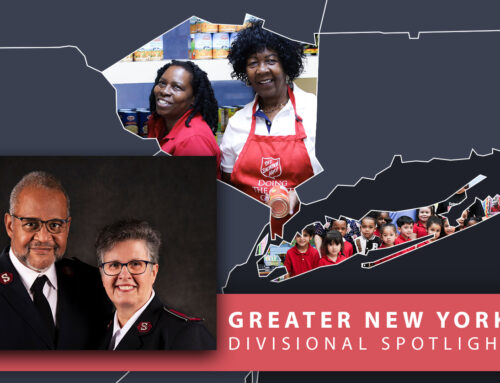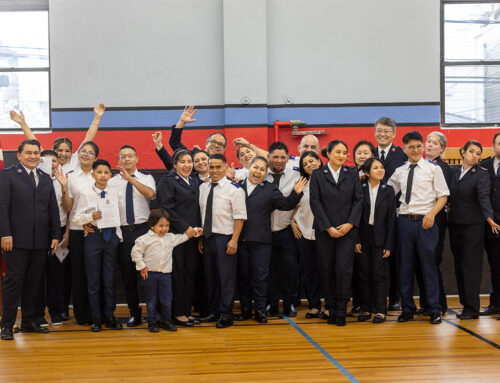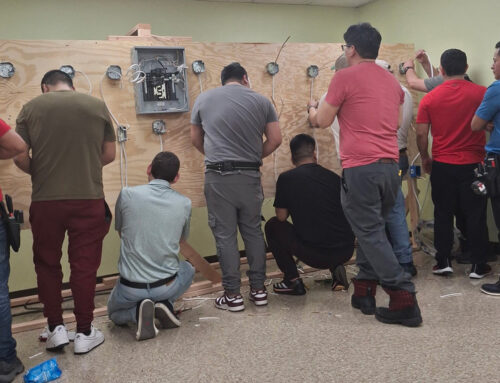Majors Israel V. and Giselle Acosta | Pawtucket, R.I., Corps
by Warren L. Maye

Majors Israel V. and Giselle Acosta, commanding officers of the Pawtucket, R.I., Corps, share some meaningful reflections on ministry.
 For Majors Israel and Giselle Acosta, the call to officership happened many years ago when then–Envoy Roberto Santos, a longtime friend, started a Hispanic ministry in Reading, Pa. When he learned that they were living in the New York area, he called them to assist him. “Shortly thereafter, we received God’s call to full–time ministry,” said Major Israel.
For Majors Israel and Giselle Acosta, the call to officership happened many years ago when then–Envoy Roberto Santos, a longtime friend, started a Hispanic ministry in Reading, Pa. When he learned that they were living in the New York area, he called them to assist him. “Shortly thereafter, we received God’s call to full–time ministry,” said Major Israel.
“What excites me most about being an officer is knowing that the Lord always has a unique plan,” says Acosta. “He uses us as His instruments. It is humbling, and at the same time, exciting.” Major Giselle is also invigorated by the Lord’s planning. “My most cherished accomplishment thus far has been witnessing the call to officership of soldiers under our ministry and seeing them flourish,” she says.
Their ministry is powered by a vigorous devotional life of prayer and meditation. Says Major Israel, “It has had a tremendous impact on our lives. We look forward to long drives when our minds connect with God as we observe stretches of nature and contemplate His good works.”
It is during these precious moments that their favorite scriptures come to mind. “My go–to scripture is Psalms 125:1–2,” says Major Giselle. Her husband’s is Proverbs 4:23.
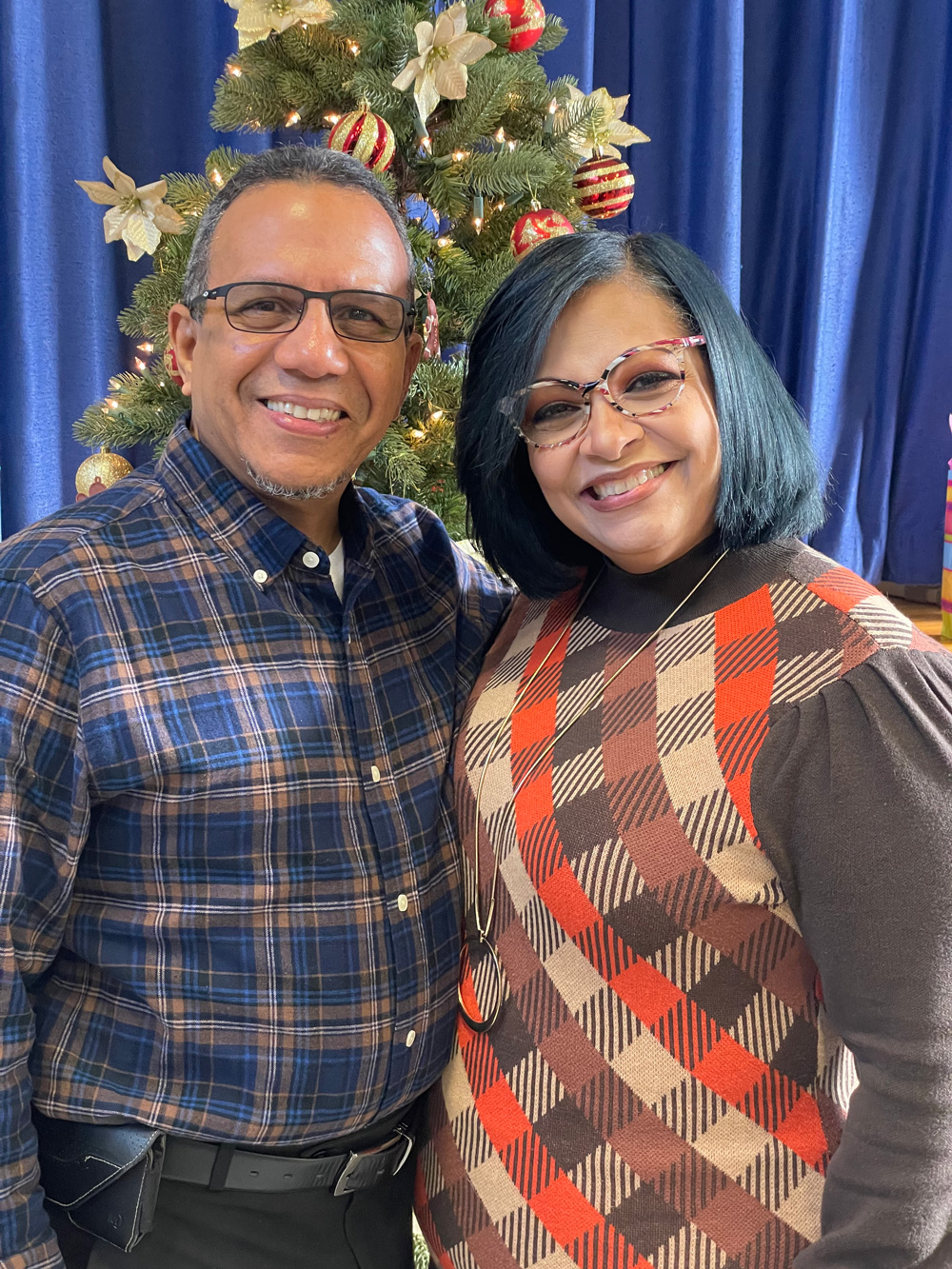 Other forms of personal development also expand their spiritual and mental capacity. “I got accepted into an Asbury University program last year,” says Major Giselle. “I am now in my second year, and I’m exhilarated by the learning experience and the opportunity to meet new people from different walks of life.” Major Israel is also pursuing growth through reading, interacting with professionals in the community, and listening to sermons from “good expositors of the Word.”
Other forms of personal development also expand their spiritual and mental capacity. “I got accepted into an Asbury University program last year,” says Major Giselle. “I am now in my second year, and I’m exhilarated by the learning experience and the opportunity to meet new people from different walks of life.” Major Israel is also pursuing growth through reading, interacting with professionals in the community, and listening to sermons from “good expositors of the Word.”
Congregations typically have high expectations of their pastors. They want truthful but charismatic preachers, assertive but kind administrators, and much more. So, the Acostas’ ministry experience has taught them important lessons on how to manage such expectations.
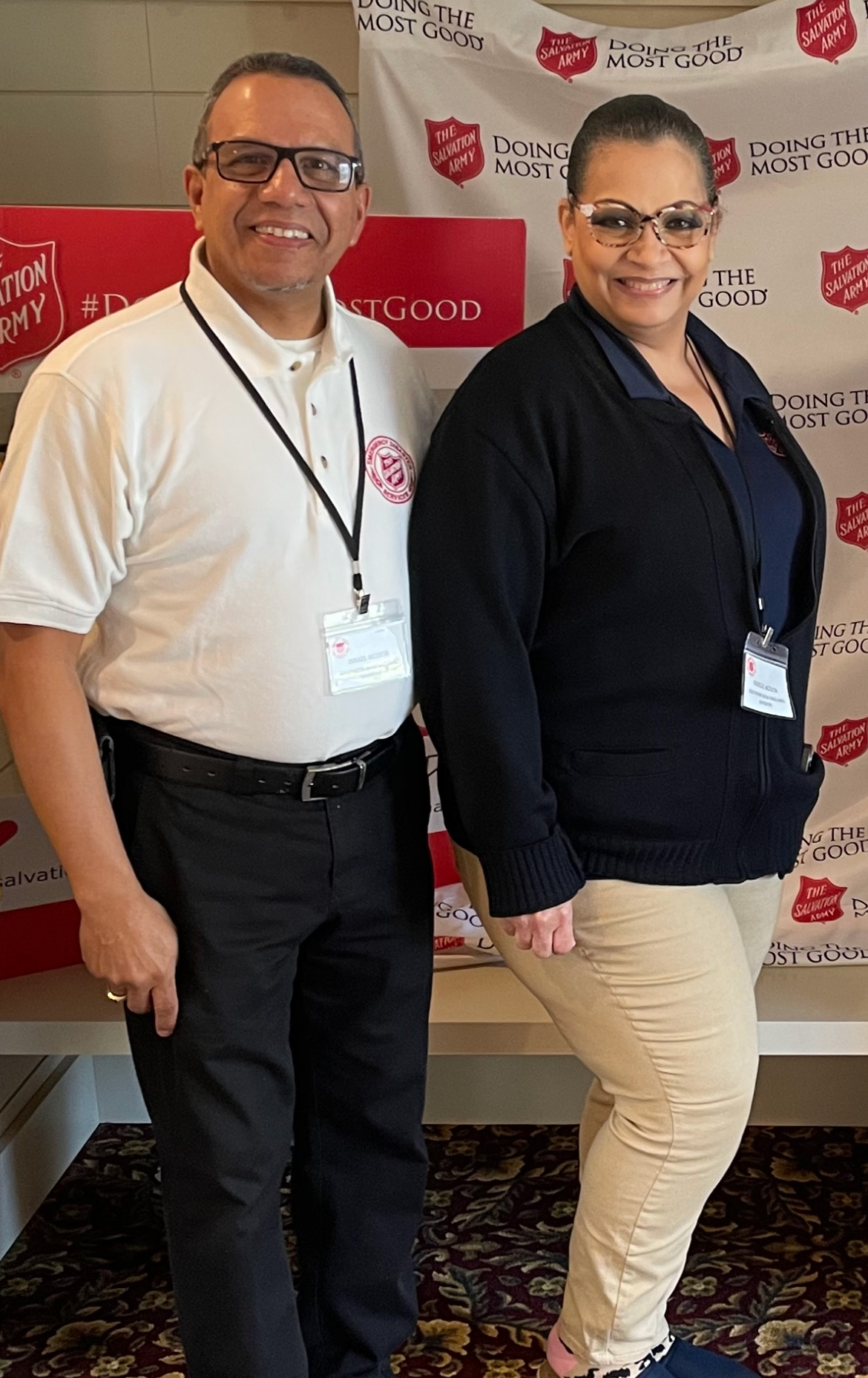 “One of the things we have always told our congregations from the day we are welcomed is that we do not want to lend an ear to complaints about the officers we just followed,” says Major Israel. “We set up that boundary, and we let them know that whatever systems they used to perform their obligations are not necessarily the same ones we will be using. That way, we can learn together what will work best for both the congregation and us.”
“One of the things we have always told our congregations from the day we are welcomed is that we do not want to lend an ear to complaints about the officers we just followed,” says Major Israel. “We set up that boundary, and we let them know that whatever systems they used to perform their obligations are not necessarily the same ones we will be using. That way, we can learn together what will work best for both the congregation and us.”
Staying excited about ministry in the face of society’s challenging personal, social, and political concerns can be a struggle. But the Acostas have learned to appreciate the subtle signs that reveal hope at every turn. “I see how a little thing like delivering a bag of groceries can light up the face of someone who is experiencing food insecurity,” says Major Israel. “That makes me think, ‘this is what I was made for!’”

